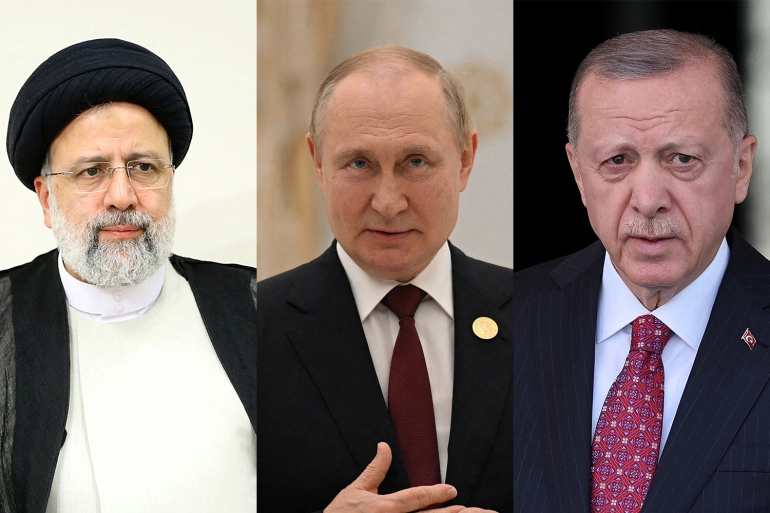Putin is scheduled to travel to Tehran to meet Erdogan and Iranian President Ebrahim Raisi as part of the Astana format of talks related to Syria, the Kremlin said last week.
Russian President Vladimir Putin and his Turkish counterpart, Recep Tayyip Erdogan, will discuss Ukrainian grain exports at their meeting on July 19 in Tehran, an adviser to Putin has said.
Yury Ushakov, Putin’s foreign policy adviser, said on July 18 that Putin’s discussions with Erdogan would also include a plan to unblock shipments of Ukrainian grain.
“The issue of Ukrainian grain shipment will be discussed with Erdogan…. We are ready to continue work on this track,” Russian news agencies quoted Ushakov as saying.
Russia has captured some Black Sea ports and bombarded others, including Odesa, while Ukraine has mined the approaches to some of its ports to protect them from a Russian amphibious assault.
Negotiations between Russia, Ukraine, Turkey, and the United Nations are reportedly close to a deal to allow shipments of grain to begin moving through the ports.
Russian and Ukrainian negotiators are scheduled to meet UN and Turkish diplomats in Istanbul on July 20 to discuss the possible agreement.
The Russian Defense Ministry indicated on July 15 that a final document on the subject would soon be ready to release the blocked grain exports as well as those of Russian grain and fertilizer.
Turkish Defense Minister Hulusi Akar confirmed that “an agreement in principle…has been found” between Ukraine and Russia to establish a secure sea corridor allowing grain transport.
According to Ushakov, a coordination center is to be opened in Istanbul allowing routing of the exports via the Black Sea.
READ ALSO: Saudi Prince to Biden: Why care more about Khashoggi than Abu Akleh?
Diplomats have said the plan being discussed includes having Ukrainian vessels guide grain ships in and out of port waters that its forces have mined. The negotiators hope the solution would empty the silos in time for upcoming harvest in Ukraine.
The impasse over grain exports has helped send global food prices soaring and raised concerns about hunger among people in Africa and the Middle East who depend on shipments of Ukrainian grain.
EU foreign policy chief Josep Borrell has warned that the blockade of Ukrainian ports threatens supplies to countless thousands vulnerable to starvation.
Borrell dubbed the issue “one of life and death for many human beings.”

